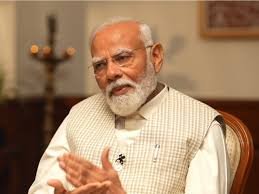Following the conclusion of exit polls indicating a likely third consecutive term for Prime Minister Narendra Modi‘s government, he chaired a comprehensive review meeting to discuss a strategic 100-day agenda aimed at kick-starting his new administration. The meeting, held on June 2, 2024, involved senior bureaucrats and aimed to finalise action plans across various sectors, ensuring swift implementation upon assuming office.
The government has established at least ten Sectoral Groups of Secretaries (SGOS), each headed by a Secretary-level official and supported by four to five senior officers. These groups are tasked with preparing and fine-tuning plans to be implemented in the first 100 days of the new government, starting July 1, 2024. The agenda includes critical areas such as governance, infrastructure, security, and the economy.
Reforms And Initiatives Included In The Agenda
The agenda includes a comprehensive review of the Union Public Services Commission (UPSC) foundation courses to enhance the training and preparation of future civil servants. Additionally, the government is planning to introduce the Karmayogi Talent Bank, a new initiative to rate civil servants before promotions, ensuring that only the most capable individuals rise through the ranks. In alignment with the BJP manifesto’s commitment to hold simultaneous polls for the Lok Sabha and State Assemblies, the government plans to develop a common electoral roll as part of the 100-day plan.
The government is also focusing on revamping rural and urban housing schemes to provide affordable housing solutions. Operationalizing 12 new coal mines and initiating gasification projects to boost energy security and reduce reliance on imports are high on the agenda. The coal ministry aims to transfer coking coal blocks to steel companies via auction and revise production plans for coal mines. Additionally, the establishment of a National Financial Information Registry will streamline lending processes by making financial data readily available to lenders.
Legal and regulatory reforms are also a significant part of the 100-day agenda. The government plans to introduce changes to the Insurance Act to allow composite licensing for insurers, enabling them to offer life, general, or health insurance under one entity. Amendments to the Insolvency and Bankruptcy Code (IBC) are proposed to introduce cross-border and group insolvency mechanisms and streamline the existing rules under the Companies Act, 2013.
The review meetings also covered urgent matters such as the aftermath of Cyclone Remal and the ongoing heatwave in parts of India. Modi was briefed on the impact of Cyclone Remal in the northeastern states, where significant damage due to landslides and floods has been reported. The National Disaster Response Force (NDRF) has been actively involved in evacuation and relief operations, and the Union government has pledged full support for recovery efforts.
With severe heat waves affecting regions like Rajasthan, Gujarat, and Madhya Pradesh, Modi emphasized the need for regular fire and electrical safety audits in hospitals and public places. He also highlighted the importance of maintaining fire lines in forests and utilizing biomass effectively. The Indian Meteorological Department (IMD) forecasts normal to above-normal monsoon rains in most parts of the country, but below-normal rainfall in parts of Peninsular India.
 Modi chaired a meeting to review preparations for World Environment Day on June 5, aiming for large-scale celebrations to raise awareness and promote environmental conservation.
Modi chaired a meeting to review preparations for World Environment Day on June 5, aiming for large-scale celebrations to raise awareness and promote environmental conservation.
Exit polls conducted after the seven-phase Lok Sabha elections, which concluded on June 1, predict a significant victory for the BJP-led National Democratic Alliance (NDA), with estimates suggesting the coalition will secure over 350 seats in the 543-member lower house. If these predictions hold true, Modi will achieve a historic third term, becoming the only Prime Minister after Jawaharlal Nehru to win three successive terms.
The meticulous planning and strategic discussions underscore the Modi administration’s focus on the rapid implementation of key policies and reforms to drive economic growth and improve governance. As the nation awaits the official election results on June 4, the detailed 100-day agenda reflects the government’s proactive approach to addressing both immediate challenges and long-term developmental goals.











